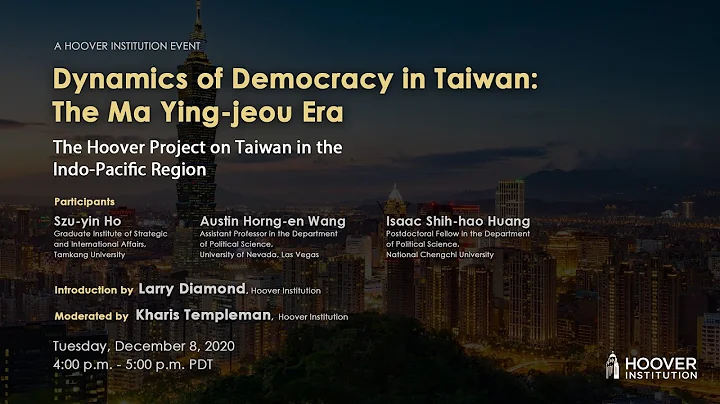In 2016, cross-Strait relations were clearly differentiated and formed into three stages: cold peace, cold confrontation, and cold turmoil.
html On May 20, Tsai Ing-wen was sworn in. The new Taiwan authorities refused to recognize the " 1992 Consensus", and cross-strait relations entered a period of cold peace and cold confrontation. html On September 29, Tsai Ing-wen, who is also the chairman of the Democratic Progressive Party, issued a "Letter to Members of the Democratic Progressive Party" and openly stated in the letter that she must resist the pressure from the mainland. Since then, cross-strait relations have gone from cold confrontation to cold war. Turbulent times.After Tsai Ing-wen had a phone call with Trump on December 2, the status quo across the Taiwan Strait was further undermined, and the cold turmoil in cross-Strait relations further intensified. Cross-Strait relations are approaching the new year in this atmosphere.

After Tsai Ing-wen came to power, cross-strait relations entered a state of "official separation and reduction of public relations" and "political coldness and economic warming". Without the "1992 Consensus" as a common political basis, the communication channels between the Taiwan Affairs Office of the State Council and the Mainland Affairs Council, the Association for Relations Across the Taiwan Straits and the Straits Exchange Foundation were completely shut down, and the official communication channels between the two sides were completely broken.
As the risk of cross-Strait relations has increased since the Democratic Progressive Party came to power, mainland Chinese tourists to Taiwan have decreased, and cross-Strait people-to-people exchanges have cooled down. Although relevant people from the United States travel across the Taiwan Strait and work hard for the Democratic Party and the Communist Party to establish a new consensus, the DPP and Tsai Ing-wen's authorities do not agree with the "1992 Consensus" and the "One China" principle, and even refuse to state that "cross-Strait relations are not between countries." "Relationships", the efforts of the Democratic Communist Party, the mainland and the DPP authorities to establish a new consensus have been in vain, and the two sides of the Taiwan Strait continue to be in a state of cold confrontation.
The Taiwan authorities have adopted the strategies of "delaying and waiting for change" and "trading time for space", and methodically promoted the existing strategy of "transformational justice" and defeating political opponents on the island. At the same time, some people on the mainland have indeed released The two sides of the Taiwan Straits can negotiate a new consensus other than the "1992 Consensus".
For the Tsai Ing-wen authorities, as long as the mainland does not "shake the earth" and as long as the "talks" continue, the status quo of peaceful development of cross-strait relations can be maintained, which is the success of their strategic implementation. Over the past year, Taiwan has traveled across the Taiwan Strait to raise issues, and "talking and dragging" has become a unique landscape.
did not agree with the "1992 Consensus", and the mainland did not "shake the earth". Instead, it extended an olive branch to the "New Consensus". In this case, the DPP authorities will naturally avoid the "1992 Consensus" in language. At the same time, it is moving further and further away from the "One China" principle in its actions. On December 2, Tsai Ing-wen had a phone call with Trump, which was Taiwan’s biggest move and the climax of its foreign relations in 2016.
There is no doubt that non-governmental exchanges between the United States and Taiwan, or even official exchanges covered by non-governmental fig leaves, have continued, but such exchanges cannot always be brought to the official stage and cannot be conducted openly.
It is impossible that successive Taiwanese leaders after New Year's Day in 1979 did not want to have public phone calls and public interactions with US leaders, but no one dared, including Lee Teng-hui and Chen Shui-bian. However, Tsai Ing-wen did it. This is a breakthrough, this is a provocation, this is an accident, and this is a destruction of the status quo.

On December 2, Tsai Ing-wen had a phone call with Trump, which was Taiwan’s biggest move and the climax of its foreign relations in 2016.
Trump’s public statements on this matter on Twitter show the new US leader’s tendency in cross-strait relations. Obama The National Defense Authorization Act for Fiscal Year 2017 signed on December 23 included military exchanges between the United States and Taiwan for the first time, which also broke the threshold for military exchanges since the United States and Taiwan severed diplomatic relations in 1979. Senior U.S. officials above the assistant secretary of defense and active-duty generals are likely to visit Taiwan, and the head of Taiwan's defense department is also likely to visit the United States. This bill allows the U.S. military to openly and formally communicate with another authority in a country that has formal diplomatic relations with the United States. In fact, it has broken through the "one China" bottom line and substantially restored the U.S.-Taiwan military alliance.
Coincidentally, the Japanese authorities echoed each other on Japan-Taiwan relations. The "Japan Exchange Association" announced that it would be renamed "Japan-Taiwan Exchange Association" starting from New Year's Day.Taking small steps quickly, from underground to public, from private to official, gradually increasing the exposure of the Taiwan authorities, and gradually raising the level of relations between the United States and Taiwan, Japan and Taiwan, has undoubtedly become an unoptimistic start for cross-strait relations next year.
In the near future, regardless of whether Trump’s cross-Strait remarks can be transformed into U.S. cross-Strait policies, Sino-U.S. relations are very likely to enter a strong confrontation mode, and the U.S.’s existing deployment to China interrupted by the “911” incident may Once again, the existing tacit understanding in Sino-US political and economic relations as well as cross-Strait relations may be broken, and the uncertainty in Taiwan-Strait relations begins to increase. Cross-Strait relations in 2017 are full of variables.
The solution to Taiwan's problems lies outside Taiwan. Cross-Strait relations in 2017 are only part of the changing Sino-US relations, and also part of the reorganization of the global order.
For the United States, the key to making the United States great again lies at home. The focus of foreign interests lies in the Middle East . The monetary settlement power of the Middle East oil trade is the foundation of the US dollar's hegemony. The control of the Middle East is the key to the United States' control of sea power. The United States under Trump does not have the ability to win two regional wars at the same time.
From a global strategic perspective, China not only has the ability to drag the United States to death in the Middle East, but also has the ability to create trouble for the Trump administration in economic and other fields. The observation point of the mainland's policy towards Taiwan is whether the mainland will make a new political decision on cross-strait relations under the new form. If so, the cross-strait situation may face a new situation.
It is in the interests of both China and the United States that China and the United States maintain the status quo in cross-strait relations, and it is also in the interest of Taiwan. Whether cross-Strait relations will be stable or not in 2017 will depend on the measures taken by the United States on cross-Strait policies.
Author:
Zhu Songling
Zhu Songling
Director and professor of the Institute of Cross-Strait Relations, Taiwan Institute, Beijing Union University, Researcher of the "One Country, Two Systems" Law Institute of Renmin University of China
For more in-depth comments on Sino-US relations, please search the WeChat official account for " "China-U.S. Focus" and follow it, or visit the China-U.S. Focus website cn.chinausfocus.com













